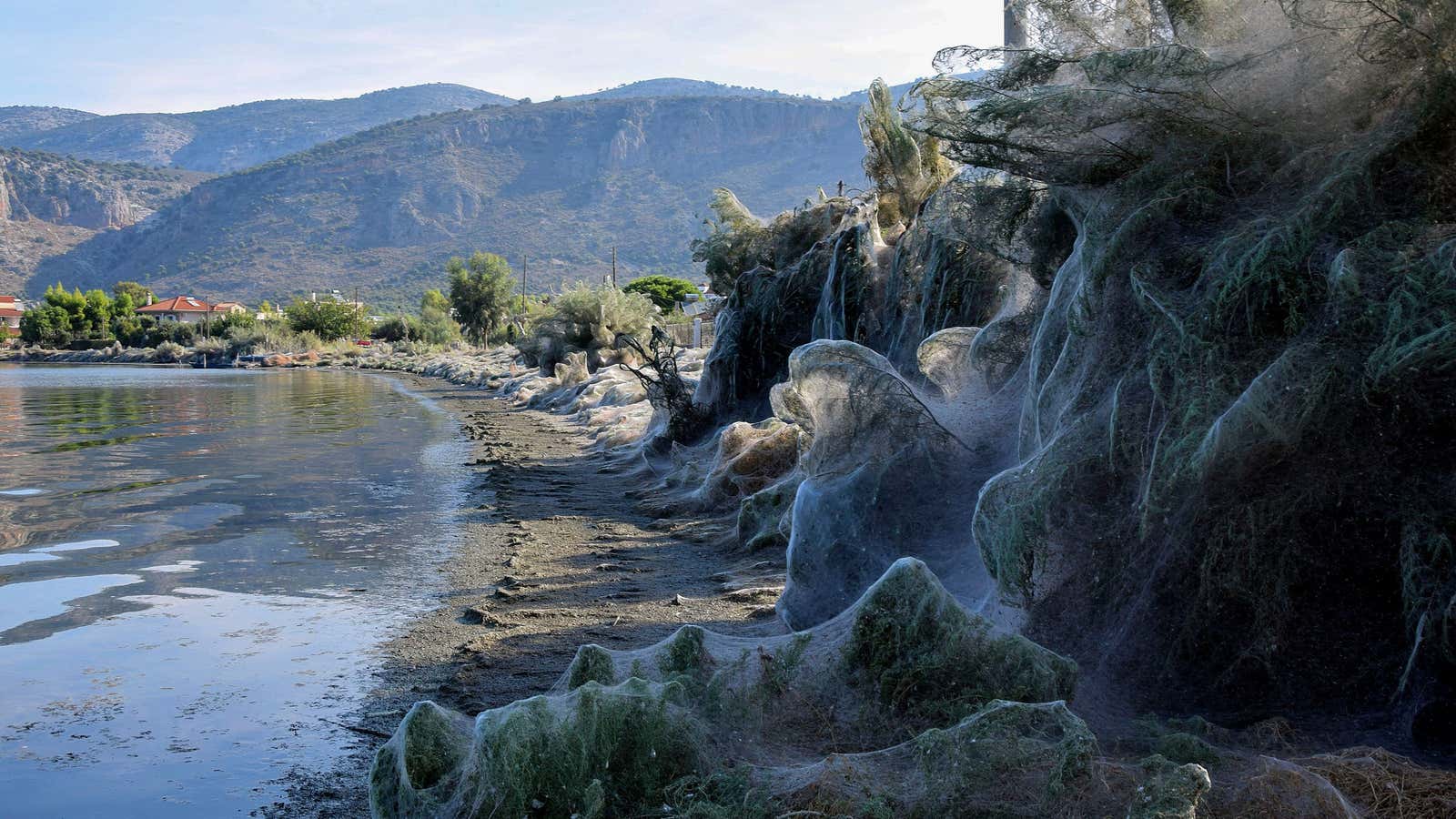The Greek lagoon of Aitoliko is postcard-worthy perfection—a rickety wooden pier stretching out into green-blue water, boats bobbing in their bays, rustic shrubbery lining the water’s edge. Lately, there’s something amiss in this idyllic spot.
It’s mating season for stretch spiders, known scientifically as Tetragnatha genus, and to celebrate, they’ve covered almost everything in sight with a dense shroud of webs.
A recent increase on mosquito populations had resulted in perfect conditions for a spider population explosion, molecular biologist Maria Chatzaki told Greek news websites. “The spiders are taking advantage of these conditions, and are having a kind of a party. They mate, they reproduce and provide a whole new generation.” Locals had seen stretch spider web coverage like this before, but not since 2003, she said.
Other than being decidedly icky, there’s no real harm from all these webs. The spiders themselves aren’t dangerous, and they’re so short-lived that their party will soon be over. When it is, the webs will degrade naturally, leaving the plants beneath them undisturbed. Still, arachnophobes may choose to keep their distance for the time being.
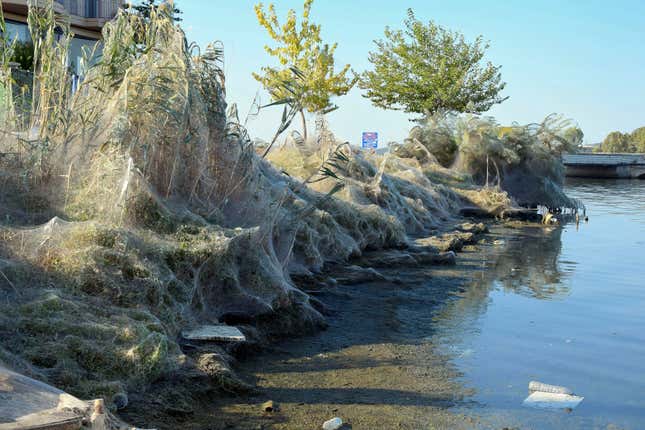
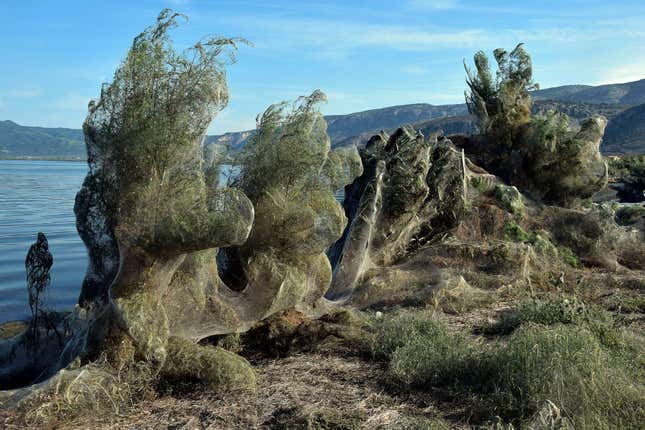
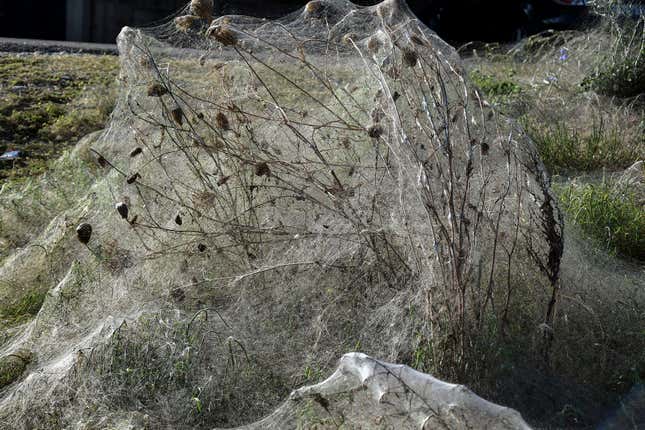
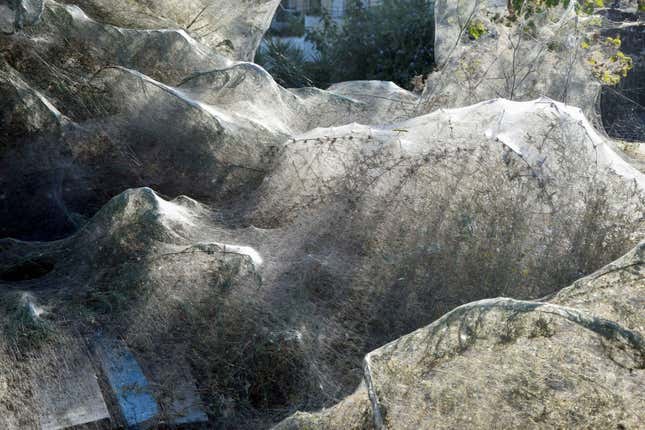
Correction: An earlier version of this article named the lagoon as Aikitiko instead of Aitoliko.
